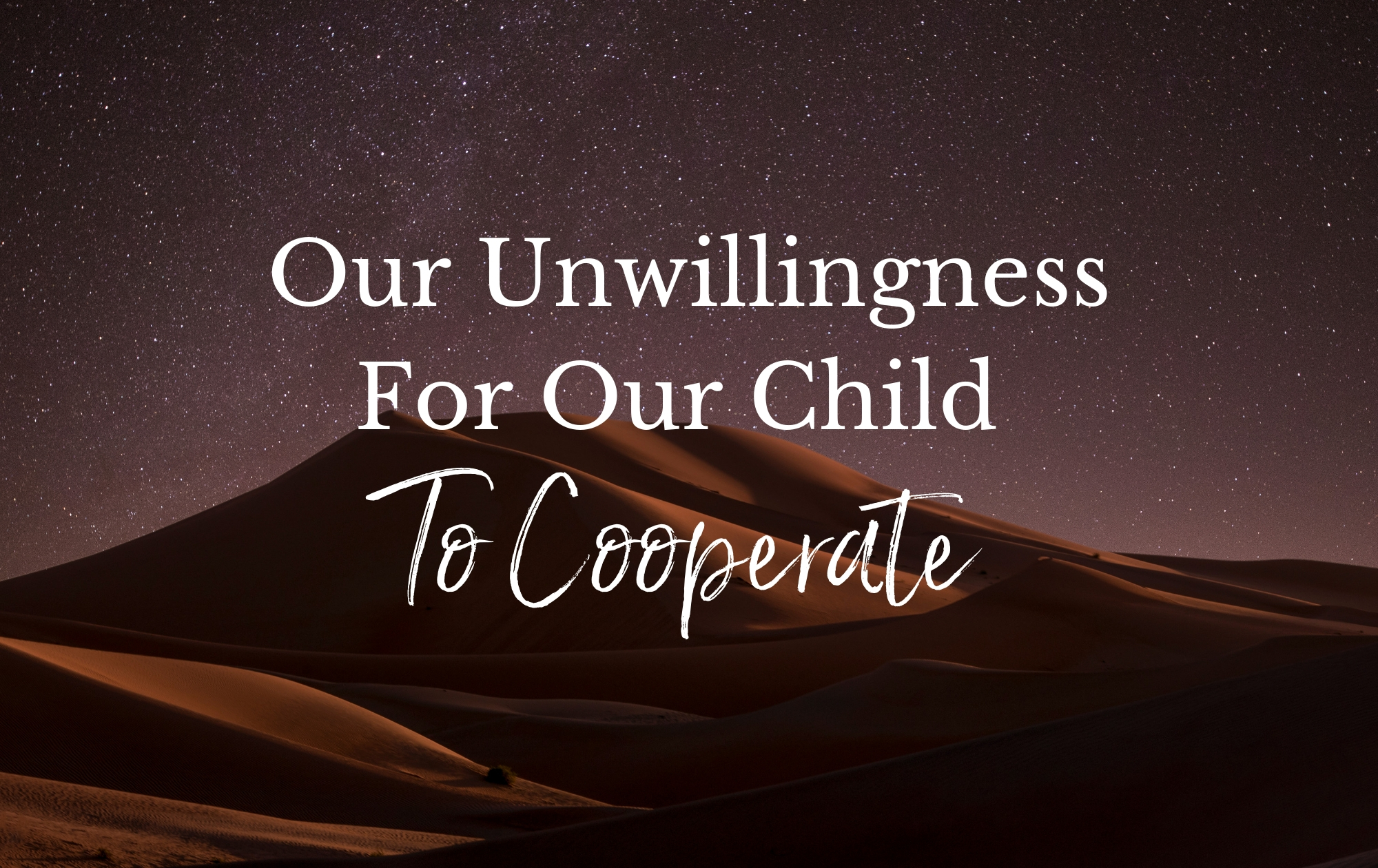When we are not truly willing for our child to cooperate with us, even though we WANT them to cooperate with us, we may find ourselves blaming them for both their unwillingness to cooperate AND our frustration (or powerlessness or anger).
We can tell if we’re actually willing if we check in with our body. Willingness has a particular body-sense to it, and so does unwillingness.
For example, you might want your daughter’s hair to be brushed, but you actually might not be willing to brush it because you’re wanting ease and you think it’s going to be a battle.
So you might say, “Come on, will you let me brush your hair now?” but if you ask her from your state of unwillingness, she’s likely to say, “no.”
Whereas, if you have a big willingness to do it, you’ll feel that energy in your body and you know that even if she isn’t initially willing, you’ll stay connected with her, talk to her about it, perhaps play some games to make it fun for her.
I imagine you can remember experiences of both of these.
Our own unwillingness has both a big impact on whether our children are likely to be willing to cooperate, AND on our likelihood of feeling powerless or frustrated when they don’t.
We may think that it’s caused by their not cooperating.
When really, the true cause is us not being anchored in our willingness in the first place.
(I can remember plenty of times when I’ve done this!)
I love it when I check in with my willingness FIRST. It makes ALL the difference!
When we can stay anchored in our willingness, we are connecting with our true sovereignty.
That means that whatever our child does, we are staying connected with our will, our deep sense of true power. This is power-with our child, not power-over them!
In my Psychospiritual Parenting Course, I help you know how to connect with your willingness in your parenting (and in other aspects of life!
